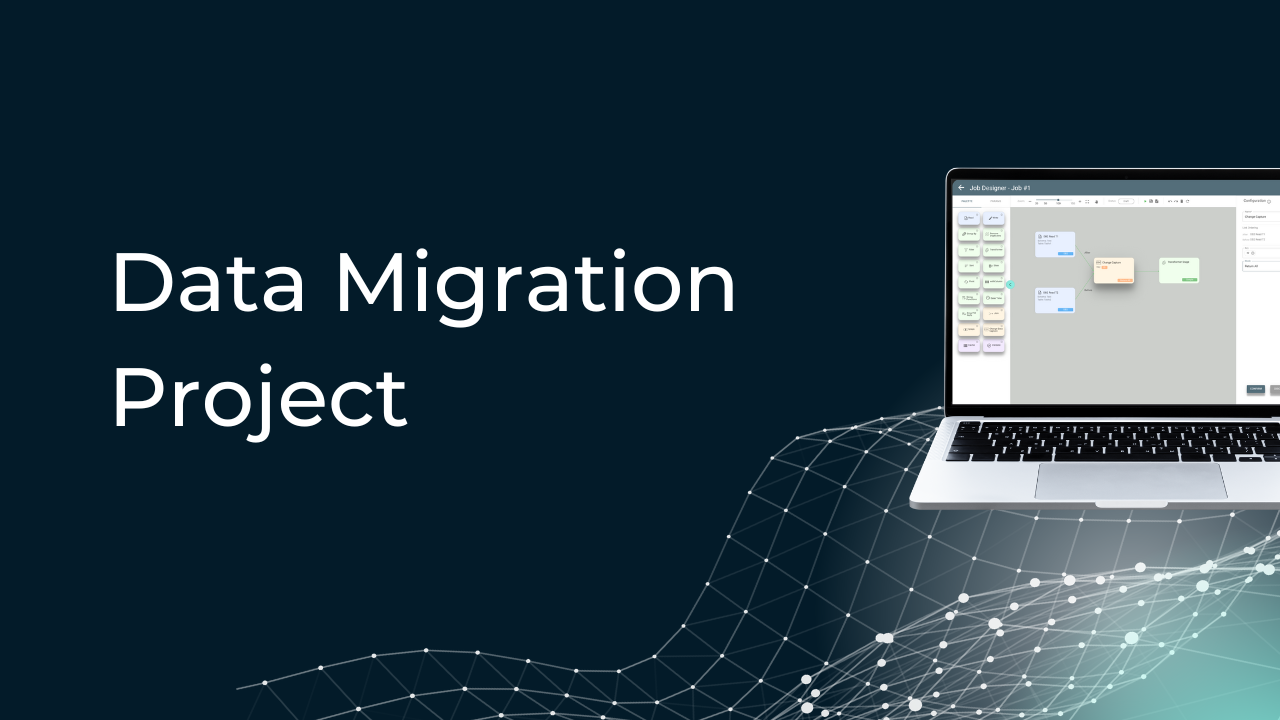Table of Content:
Table of Content:


Today, corporate business analytics is essential for every enterprise that uses large volumes of data and requires analysis to make constructive decisions. It offers broader capabilities than traditional BI, scaling the capabilities of information analysis and, most importantly, making informed decisions. As such, corporate business analytics is very important for scaling any business and maintaining competitiveness in the market. It also provides deep insights into various processes within the company, which is vital for streamlining operations and expediting strategic decision-making.
Using a professional enterprise business intelligence platform, companies can extract valuable information from their data sources, which allows them to increase productivity, improve customer interactions and optimize operational efficiency. Today, it is almost impossible to achieve high results without its use, and this trend will only continue to develop.
How Enterprise BI Works
Enterprise Business Intelligence collects, summarizes, and integrates a company’s various data sources into a unified platform. This interconnected system optimizes data flow and helps uncover logical patterns, isolating critical insights that drive decision-making.
Here’s how BI functions in detail:
- Data collection.
First, data is collected from all parts of the corporate environment. It is very important to organize the collection of information correctly since it is often difficult or even impossible to do this effectively due to technical limitations. This includes CRM, enterprise resource planning software, various databases, including cold and hot clients, financial accounting systems, social networks, etc. Only modern enterprise business intelligence platforms can seamlessly combine data from these disparate sources, which will give a complete picture of the interaction of different departments of the company.
- Data processing.
Effective data collection is another task. It’s not just about gathering information but organizing and preparing it for analysis. At this stage, it is important to select the main thing and remove irrelevant or duplicate information. This is not always easy to do, since you have to deal with thousands or even millions of transactions, requests, messages, and other forms of interaction with clients and within the company.
- Data analysis.
If you have already processed data in a convenient form, you need to choose the right analytical tools for it. Advanced enterprise business intelligence solutions employ a range of analytical tools, including predictive analytics, machine learning, and artificial intelligence, to detect patterns and trends within the data. These tools can be used either individually or in combination, depending on the complexity and scale of the dataset. Depending on the complexity and volume of data, tools of different levels are needed that could find the most complex patterns and algorithms, isolating them from the entire array of information. With large volumes of information, many patterns cannot be identified even by experienced specialists, but nothing is impossible with modern tools.
- Visualization and reporting.
After receiving and analyzing the data, it is equally important to systematize it and provide it for study. Data is translated into visual formats such as graphs, charts, and dashboards, making it easy for stakeholders to understand. Effective visualization allows decision-makers to quickly grasp key metrics, assess performance, and identify areas for improvement.
- Real-time monitoring.
It is also important to be able to monitor current information, which will allow executives and managers to have access to the most relevant data and respond to any changes in the system. Automated alerts and thresholds can be set to notify stakeholders of significant changes, such as deviations in sales performance or shifts in customer behavior, allowing for timely intervention and risk mitigation.
- Collaboration and sharing.
For BI to be effective, collaboration across the organization is critical. Each member must have all the data they need and be able to easily interact with other departments. This promotes a unified, data-driven approach to decision-making, allowing teams to align their goals and actions based on the same set of insights. Cloud-based enterprise BI solutions further improve collaboration by allowing employees from different locations or departments to access data and analytics in real time.
Only systematic adherence to all of these aspects will ensure high-quality data analysis within the company. These solutions will help establish supply chains, improve financial performance, and use the full potential of the company to achieve strategic goals.
Industries That Benefit Most from Enterprise BI
Enterprise BI is already used in a wide range of industries today, and those who use it have a significant advantage over their competitors in the processes of managing large amounts of data and making business decisions. Among such industries:
- Retail.
This system helps to understand and predict customer behavior, offer them personal solutions, and develop individual marketing strategies for different regions. It also significantly helps to establish and optimize supply chains and inventory management.
- Finance.
Due to the ability to work with huge amounts of data, enterprise BI will help when working with the financial component of the business. This includes risk assessment, tracking, market trends, the ability to optimize business processes, identify growth opportunities, and other issues.
- Healthcare.
BI solutions allow the creation of a clear and accessible patient database and improve operational efficiency and financial management. They help healthcare providers to analyze patient data and optimize resource allocation, which guarantees customer satisfaction.
- Manufacturing.
In manufacturing, enterprise BI will optimize various production processes, improve supply management, and establish the most efficient logic. This helps manufacturers maintain a competitive edge by reducing waste and improving the overall quality of their goods.
- Telecommunications.
Telecommunications companies will be able to effectively analyze user data, which in turn helps them develop targeted marketing strategies and offer personalized content.
- Energy.
In the energy sector, enterprise BI aids in asset management, demand forecasting, and risk assessment. By analyzing data from various sources, BI tools help energy companies make informed decisions about resource allocation, improving efficiency, and reducing operational risks.
BI solutions offer companies a lot of advantages today, and over time, the influence of enterprise BI is only set to grow.
Key Integrations for a Business Intelligence Solution
Today, business intelligence (BI) has become an indispensable solution for organizations, offering numerous critical benefits:
- Customer Relationship Management (CRM).
BI allows to create effective advanced CRM systems that will contain all the information about customers, their behavior, and preferences in detail. Correct integration of the CRM system into the platform will allow us to accurately track the slightest trends and develop individual marketing campaigns. It also improves customer service and identifies opportunities for additional and cross-selling.
- Enterprise Resource Planning (ERP).
The ability to plan resources and optimize business processes without resorting to extensive human resources will become key for large companies that previously used entire specialized departments for this. BI integration with ERP systems reduces the reliance on extensive human resources by automating logistics, reducing operational costs, and improving overall productivity.
- Marketing automation platforms.
Automating customer interactions and tracking engagement, conversions, and return on investment (ROI) is vital for many companies. By integrating marketing automation platforms with BI tools, businesses can continuously adjust strategies, optimize budgets, and deliver targeted messages more effectively to their audience. This helps to adjust strategies, optimize budget allocation, and more effectively deliver targeted messages to the audience.
- Finance and accounting systems
BI integration helps to accurately track the company’s financial status in real time, provide a clear view of cash flow and improve expense management. It will also help large companies to forecast revenues, manage financial risks, and ensure compliance with regulatory requirements by using data from various financial sources.
- Human Resource Management (HR) Systems.
Integration of HR systems with BI permits to have all the information about any employee of the company and make it possible to compare this data. It ensures that organizations can build effective HR policies by analyzing performance data and optimizing personnel management.
- Data warehouse.
The ability to store data is an important factor. Enterprise business intelligence solutions ensure consistency, reliability, and scalability in data analysis, allowing businesses to seamlessly store and process large volumes of information by consolidating information from CRM, ERP, SCM, and other systems.
- Cloud Services and IoT Devices.
BI is designed to store and exchange information via cloud services, and then analyze data seamlessly. This will give the company flexibility and scalability, save time and money on data storage, and increase information security. Unlike physical storage, cloud services offer unparalleled access to information, enabling businesses to operate more efficiently with real-time data availability.
- Collaboration Tools.
BI is essential for ensuring that teams across departments access the same data, fostering collaboration and consistency. Integrating collaboration tools such as Slack, Microsoft Teams, or other corporate communication platforms with BI solutions allows teams to share ideas, discuss results, and make informed decisions collectively. This significantly speeds up the decision-making process at all stages.
- Security and Regulatory Compliance Systems.
With increasing competition and regulatory scrutiny, it is important to make sure that all security systems comply with industry standards. Compliance with regulations such as GDPR, HIPAA, or industry standards is extremely important today and reduces the risk of fines or lawsuits.
As you can see, implementing BI enables the creation of a reliable modern platform that provides a 360-degree view of your operations, making your business as competitive as possible in the market.
How to Ensure the Success of Enterprise Business Intelligence
Implementing an enterprise BI system can come with some challenges that you should keep in mind.
- Management support.
The entire management team should be very understanding and supportive of the implementation of the system. This will allow all departments to work together and implement BI as smoothly as possible.
- Data quality.
The system will only function effectively if it operates with high-quality data. Therefore, you need to make sure that your data is in the right form, accurate and up-to-date.
- User training.
All employees should understand how BI tools work and how to use them. This understanding will enable the system to operate effectively on its own and facilitate seamless collaboration between departments.
- Scalability.
It’s advisable to incorporate scalability into the system from the outset. To do this, choose a flexible BI that can fine-tune.
But most importantly, you must clearly understand what goals you set when implementing BI and what you want to get in the end. This will allow you to set the right tasks for it.
Enterprise Business Intelligence Software and Tools
Smooth implementation of BI solutions is possible, thanks to the wide range of available software and tools. Each of these tools stands out by offering distinct features and functions.
- Microsoft Power BI.
It is a universal tool, ideal for use within the Windows system due to its seamless integration with Microsoft products. It has a simple and clear interface and sufficient functionality, so widely adopted across various industries.
- Tableau.
An excellent choice for users who prioritize working with visual data. Even beginners can create interactive dashboards and reports. So why is it a user-friendly solution for data visualization.
- Qlik Sense.
A powerful tool for analytics and integration of data from different systems. An excellent choice for companies that require information in real time.
- SAP BusinessObjects.
A powerful tool that is used in large enterprises for complex data reporting, analysis, and visualization.
- IBM Cognos Analytics.
Cognos offers AI-powered analytics and reporting, so it is a great choice for companies looking for advanced analytics capabilities.
Before choosing a tool, it is important to check the latest version, as these products are evolving very quickly.
Cost Factors of Enterprise BI
Of course, any manager is concerned about the cost of implementing Enterprise BI. It depends on several factors:
- Organization size. Larger organizations require more complex systems, which proportionally increases costs.
- Licensing fees. Today, most enterprise BI tools follow a subscription-based model. Licensing fees can vary widely depending on the solution’s complexity, ranging from several thousand to tens of thousands of dollars per year.
- Companies often need to customize BI tools or even change certain components, which can further impact the final price.
- Training. It’s important to keep in mind the need for employee training to ensure they can effectively work with the new system.
- Maintenance and support. Don’t forget about regular maintenance, updates, and creating backups of data.
- Data storage. Storing large amounts of data can also require ongoing costs, especially if you need to analyze it in real time.
Despite these costs, the return on investment (ROI) is likely to be realized quickly, as the implemented tools will greatly optimize all business processes.
Considering Professional Enterprise Business Intelligence Services
For companies that need to implement corporate business intelligence services, it is important to seek the expertise of professionals. This approach ensures they receive high-quality consulting and implementation of the system according to their needs. Specially trained service providers can assist with the deployment of BI systems, including data integration, configuration, and user training.
In addition, managed BI services provide ongoing support to ensure the correct operation of the system and compliance with changing business needs. All this will minimize possible risks and ensure that the company gets the maximum return on its investment.
Contact us































































